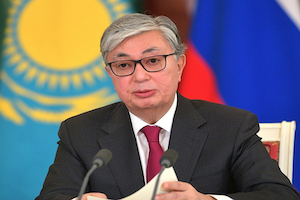Kazakhstan's President Visits China Amid Troubles at Home
By Natalia Konarzewska
November 12, 2019, the CACI Analyst
On September 11-12, Kazakhstan’s new President Kassym-Jomart Tokayev paid his first official visit to China, aiming to upgrade bilateral ties and generate more Chinese investment in the country. Yet the official rosy picture of flourishing bilateral relations is clouded by the plight of ethnic Kazakhs inhabiting China’s Xinjiang region and the social and environmental concerns surrounding Chinese investments in Kazakhstan. For the past several years, China’s economic clout in the country has been growing but social attitudes towards China have simultaneously deteriorated rapidly, resulting in a rise of anti-Chinese sentiment and protests – the latest taking place in Kazakhstan’s major cities in early September. Moreover, Kazakhstan is undergoing a political transition process which makes the country even more vulnerable to the strong influence of its eastern neighbor.
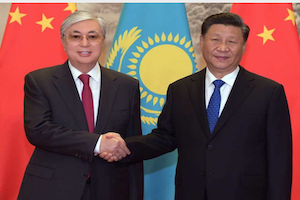
Kazakh Anti-Chinese Protests and the Issue of Xinjiang Detention Camps
By Elzbieta Pron and Emilie Szwajnoch
October 31, 2019, the CACI Analyst
On September 21, another wave of popular anti-Chinese protests burst in Kazakhstan’s two main cities – Nur-Sultan (formerly Astana) and Almaty. During the demonstrations, Uyghur protesters joined Kazakh activists and jointly voiced their demands regarding Kazakhstan relationship with China. However, the issue of Kazakhs and Uyghurs detained in Xinjiang camps has been sidelined as a broader agenda has taken charge and the protests been overtaken by emotional anti-Chinese sentiments. While the official Kazakh response to the problem of Xinjiang camps has been very limited, yet the most active among Central Asian states, the collective voice of protesters is hardly going to have any effect on politics.
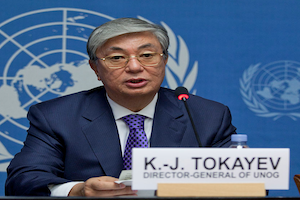
Russia Moves to Strengthen its Profile in Central Asian Gas Politics, Threatens Trans-Caspian
By Azad Garibov
October 24, 2019, the CACI Analyst
With a promise to increase gas imports from Central Asia and to resume gas purchases from Turkmenistan after a three-year break, Russia’s energy giant Gazprom became increasingly active in Central Asian gas politics in the summer of 2019. This stands in contrast to Russia’s relative passivity in this area over the last decade, as its significantly lowered imports of gas from the region has allowed China to become the dominant player in Central Asia’s gas market. However, Russian gas export to Europe has hit record levels for several consecutive years, implying an opportunity to revive the practice of re-exporting Central Asian gas to Europe.
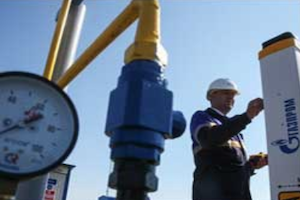
Central Asia: Delayed Consultations, Suspended Integration
By Farkhod Tolipov
July 2, 2019, the CACI Analyst
After almost a decade-long break in regional summits of Central Asian states, the ice began to melt in March 2018 when the leaders of five Central Asian states met in Kazakhstan’s capital Astana for a so-called Consultative Meeting. Many observers termed the event a revitalization of the regional cooperation process, albeit in a new temporary format for talks, and a cautious step toward a regional approach to regional problems. During that first Consultative Meeting, it was decided that the second meeting would take place in Tashkent in March 2019. However, when March came the meeting was rescheduled for April and is still delayed.
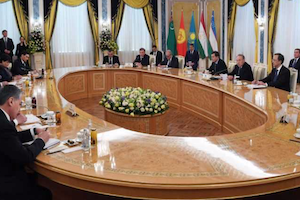
Kazakhstan Elects New President
By Natalia Konarzewska
June 18, 2019, the CACI Analyst
On June 9, 2019, Kazakhstan held snap presidential elections following the resignation of long-term President Nursultan Nazarbayev. Nazarbayev’s close associate and former speaker of the Senate Kassym-Jomart Tokayev won the ballot receiving 70.76 percent of the votes. The election was accompanied by large protests in the country’s capital Nur-Sultan and in Almaty, followed by detentions of hundreds of protesters. It is unlikely that the change of president will bring radical change in Kazakhstan. Tokayev has already declared his commitment to preserving Nazarbayev’s legacy. Multiple developments indicate that preparations for the power shift in Kazakhstan have been ongoing for years, suggesting that the presidential succession was carefully planned and micromanaged from behind the scenes to ensure a smooth transition of power.
